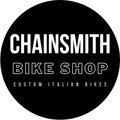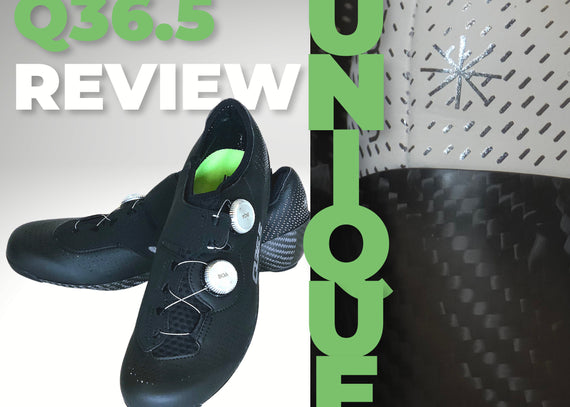"Ambition is the path to success. Persistence is the vehicle you arrive in." – Bill Bradley
This feature marks the beginning of our Chainsmith series spotlighting the unique approaches and contributions of these exceptional Australian framebuilders. We commence with Sean Doyle of Devlin Custom Bikes, whose commitment to steel craftsmanship sets a high standard in the industry. From his workshop. Following this, we delve into the precision engineering of Mark Hester at Prova Cycles, and then look at Chris Palmer of Palmer Bikes, who is redefining custom carbon framebuilding in Australia's Macedon Ranges.
👉 Part 2: Mark Hester – Prova Cycles
👉 Part 3: Chris Palmer – Palmer Bikes
I first met Sean Doyle at the Handmade Bicycle Show in Melbourne—now known as SPOKEN—where his quiet passion and deep engineering knowledge immediately stood out. Years later, I traveled to Maydena, Tasmania, to visit his workshop at the base of one of Australia’s most demanding bike parks. There, in a hand-built shipping container, Sean continues to build some of the most thoughtful and technically refined custom frames in the country.
Despite the extraordinary work being done by builders like Sean, many Australian riders remain unaware of the wealth of options beyond the mainstream brands. Custom bikes are often overlooked, misunderstood, or mistaken for a luxury reserved only for the elite. But the truth is, a well-made custom bike—built specifically for your body, goals, and terrain—can transform your ride in ways an off-the-shelf frame never will. To help change perception, I’m sharing a series of interviews—beginning with Sean Doyle of Devlin Bikes—spotlighting local builders who create exceptional frames designed to meet even the most competitive of riding ambitions.

For over a decade, I’ve visited workshops around the world, working closely with some of the most skilled frame builders to help riders find bikes that genuinely suit them. These encounters have shaped the vision behind Chainsmith, but more importantly, they’ve proven that craftsmanship and performance don’t belong only to factory-produced brands. They’re alive and well right here in Australia. It’s time more riders knew that custom doesn’t just mean a different paint job—it means a fundamentally better fit, a more refined ride, and a lasting connection to the bike beneath you.
Devlin by Name, Perseverance by Nature
When you first meet Sean Doyle, founder of Devlin Bikes, you don’t meet a salesman wanting to make a quick dollar. You meet a quietly spoken, warm, and self-effacing craftsman. He’s quick to laugh, open about struggle, and deeply reflective—not just about building bikes, but the toll and meaning of dedicating your life to it.

It’s fitting that Sean named his brand after his mother’s maiden name: Devlin, an Irish name historically associated with being “unlucky.” But in a beautifully ironic twist, Devlin is also said to be “a boy’s name for someone who will learn the power of perseverance.” And perseverance defines every frame Sean builds.
The Engineer Behind the Torch
Sean’s story doesn’t begin in a bike shop—but on the bike itself, racing both road and MTB. Like most frame builders, his story intertwines within the world of fabrication and engineering. By the age of 20, Sean was combining riding with work, "I was doing my drafting at that point and I actually had a drawing of a suspension frame on my drawing board back in 92"

Sean spent years designing and problem-solving on a scale that demanded process discipline, structural integrity, and attention to risk. These same principles now shape his work in steel. For Sean, there is a heirachy in the process. First and foremost he listens to the rider's need, but combines his expertise in understanding material limits and engineering solutions.
“The biggest thing is working through the process of conception of design, working out the end goal, and then like any process, the steps to get to that end goal" he adds, "with the input from the customer who's the priority really, but also working with the limits of particular material or fabrication process.”
In Devlin’s case, that solution might be a trail-slaying hardtail or a long-distance all-road bike. Geometry is customised. Materials are meticulously selected. Whatsmore Sean applies the latest fabrication techniques exactly where a bike demands it. And if it takes 200 hours to complete one frame—so be it.

3D-printed steel lugs, once seen only in carbon or aerospace industries, now play a critical role in Sean’s mountain bikes. Its just one way in which Sean has optimised a riders experience by using new technologies. Specifically, 3d printing allows for more complex forms that optimise strength and reduce weight—adding both aesthetic freedom and structural advantage.
Custom Isn’t Colour: It’s Engineering
Most riders associate “custom” with choosing paint colours or replacing the off-the-shelf handlebar. But for builders like Sean, custom means rethinking the entire structural design around the rider’s physiology, riding style, and terrain. It means reinforcing zones of fatigue, aligning tubing angles for stability and control, and speccing components that match user-case—whether it's weekend bike packing or racing Enduro in Tassie.
“I overbuild a little,” Sean admits. “I could make them lighter, sure. But I build for real-world riding, for strength, for longevity.”

Unlike high-volume production bikes, which often prioritise weight or visual design over durability, Sean’s bikes are built to survive years of hard use, and to feel balanced and intuitive from the first ride.
“I've never felt so comfortable so quickly on a new frame.” MTB rider Liam Cobham says of the Devlin Jester
But this high-level craftsmanship carries a paradox: despite the precision and technical integrity, builders like Sean often struggle to gain trust from new customers—particularly those conditioned by big-brand marketing.
Why Trust Follows Familiarity—Not Always Quality
It’s here that the challenge sharpens. Custom builders often deliver greater performance, better fit, and longer life than off-the-shelf bikes. Yet many riders hesitate, convinced that mass-produced bikes from brands like Trek or Specialized are “safer” bets.

Why? Familiarity breeds trust—not necessarily engineering excellence.
“I’ve had riders ask, ‘How can your bikes be as good as a Specialized?’” Sean says. “They see a shipping container and assume it’s second-rate. But the bikes are often better. They just haven’t been told to believe it yet.”
This isn’t ego—it’s evidence. Devlin frames are built by hand to sub-millimetre tolerances, using butted tubing tailored to rider weight and usage, and fabricated with attention to details large brands don’t have the time—or margin—to deliver.
And still, perception wins the day.

The Reality of Isolation
Devlin now operates out of a small, meticulously outfitted workshop at the base of Maydena Bike Park, Tasmania’s rugged, scenic, and often punishing trail hub. It’s a dream location—but not without complications.
“Paint access is hard. Tools are expensive to ship. If I forget a bolt, that’s a three-hour delay,” Sean laughs. “But I wouldn’t trade it."
For Sean, this location is his marketing budget. However, there is little to no opportunistic foot traffic. No showrooms, retail outlets, or big brand drawcards. But there are riders. And they’re watching. Some have begun asking questions. Others peer through the workshop window as they queue for the shuttle bus. Slowly, the word is spreading.
Client Connection Over Conversion Funnels
What sets Sean apart isn’t just his fabrication—it’s his willingness to connect. He offers clients the opportunity to visit the workshop during the build, to see the frame in progress, and to participate in decisions large and small.

And the results speak volumes:
“Of all the bikes I’ve owned, my Devlin is my absolute favourite. It got me to a place outside the pressures of my own head. I’ve never owned a bike that can do all that.” – Peter Spencer
“Seven years on, it’s still the best thing I ever bought.” – Adam Gault
“It’s a dream, and it’s built to last. Sean is world-class.” – David Haslett
Building, Not Selling
So what does success look like for Sean Doyle?
“It’s not millions. It’s just being on a rider’s shortlist when they want a special bike. One they’ll have for life.”
Still, the burden of running a one-man operation in a culture conditioned by mass production is immense. Tools. Time. Communication. Marketing. Inventory. Each of these weighs heavily when the hands brazing the frame are also the ones answering emails at midnight.
Even sourcing parts can be a headache. “Big companies don’t want to sell you one derailleur,” Sean says. “They want volume. But I want precision. And it’s hard when you’re building one bike at a time.”
He’s not alone. This frustration is echoed by other Australian builders, many of whom face barriers to trade and recognition, despite producing frames as technically advanced as any carbon performance bike.

The Paradox of Perception: Why Technical Mastery Isn’t Always Enough
This is the paradox at the heart of the frame building industry: the most skilled builders must fight the hardest to earn trust—not because their products are inferior, but because they’re unfamiliar or silenced by a world favoring mass marketing.
In an industry flooded with noise, the quiet work of builders like Sean Doyle risks being overlooked. Not because it lacks innovation, but because it isn’t amplified by algorithms, ad budgets, or celebrity endorsements.
And yet, Devlin bikes continue to win hearts and legs one rider at a time. They’re not built to fit a billboard—they’re built to fit you. And in the long run, that might be the most revolutionary thing of all.
Ready to ride something different?
Visit www.devlincc.com or follow @devlincycles on Instagram. Even if you're not buying, Sean’s always happy to talk bikes—and build trust the old-fashioned way.
Interested in a Devlin bike?
Get professionally sized in Sydney At Chainsmith, we offer a personalised bike fitting experience designed specifically for custom builds like Devlin. With over a decade of working directly with Australian and international frame builders, we ensure your frame geometry, ride position, and component selection are optimised to your body and your goals. Our expert fitting service is the first step toward building a bike that feels uniquely yours—making your investment in a handmade frame not just worthwhile, but transformative. Get in touch to book your Devlin sizing session today.





